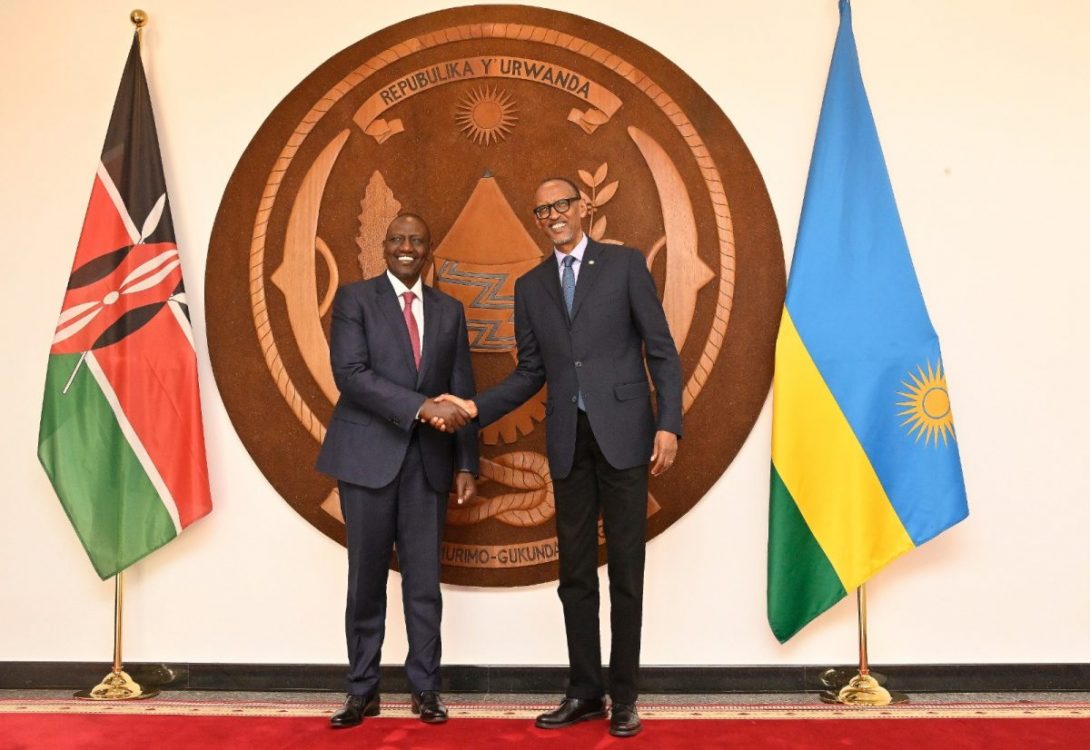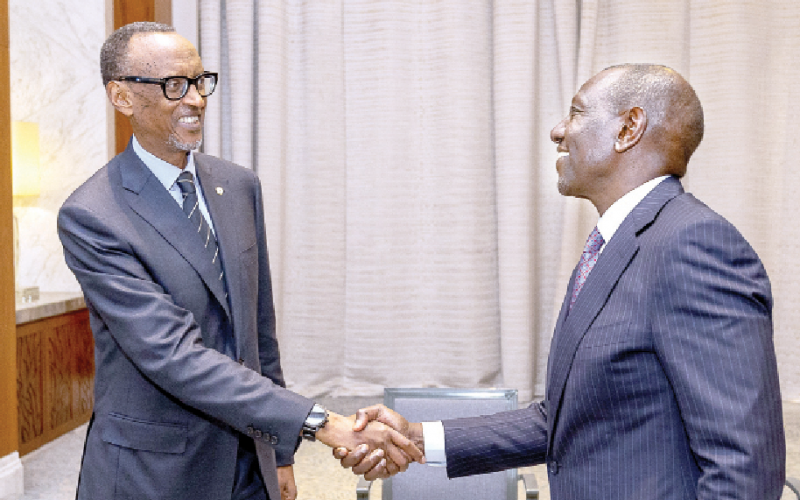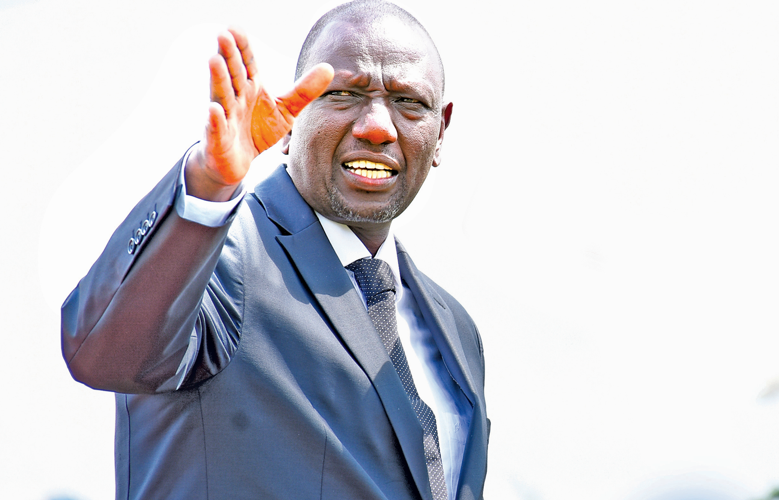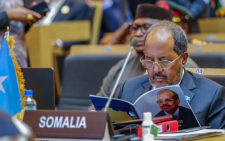President Ruto lauds Kagame’s leadership as Rwanda commemorates 30 years post-genocide

Kenyan President William Ruto has praised Rwandan President Paul Kagame for his steadfast leadership, remarkable courage and visionary approach during his tenure, particularly as Rwanda commemorates 30 years since the genocide that claimed many lives.
In a statement shared on his social media platforms, President Ruto extended his government’s best wishes to Rwanda as they continue their journey towards greater prosperity.
“I commend my brother, President Paul Kagame, for his resolute leadership, tremendous courage, and abundant foresight. The people and government of Kenya wish him and the people of Rwanda godspeed as they continue to build their country to even greater heights,” Ruto expressed.

President Ruto emphasized Rwanda’s remarkable progress and resilience, viewing it as a testament to the nation’s ability to overcome adversity and foster reconciliation.
“30 years since the Rwanda genocide, the country has made tremendous progress that demonstrates the total resilience of the people and the government of Rwanda. Rwanda is a shining example of the people’s immeasurable power not only to overcome adversity but also to reconcile and live as one people,” he remarked.
The Rwandan genocide, also known as the genocide against the Tutsi, occurred between April 7 and July 15, 1994, during the Rwandan Civil War. It resulted in the tragic loss of numerous lives, with estimates indicating hundreds of thousands of Tutsi deaths.
The conflict originated when the Rwandan Patriotic Front (RPF), predominantly composed of Tutsi refugees, launched an invasion from Uganda in 1990, sparking the Rwandan Civil War. Despite efforts to negotiate peace, the assassination of Hutu president Juvénal Habyarimana in April 1994 escalated tensions and led to genocidal killings perpetrated by Hutu extremists.
Genocide’s brutality
The genocide’s brutality shocked the world, prompting global condemnation. However, intervention to halt the atrocities was minimal, and the violence continued until the RPF gained control, ending the genocide.
The aftermath of the genocide led to profound consequences, including further conflict in neighbouring countries and the enactment of laws in Rwanda to prevent the incitement of genocide ideology and divisionism.

Today, Rwanda commemorates the genocide with public holidays, honouring the victims and reaffirming the commitment to prevent such atrocities from recurring. President Ruto’s acknowledgement of Rwanda’s progress reflects a spirit of solidarity and mutual respect between Kenya and Rwanda.












